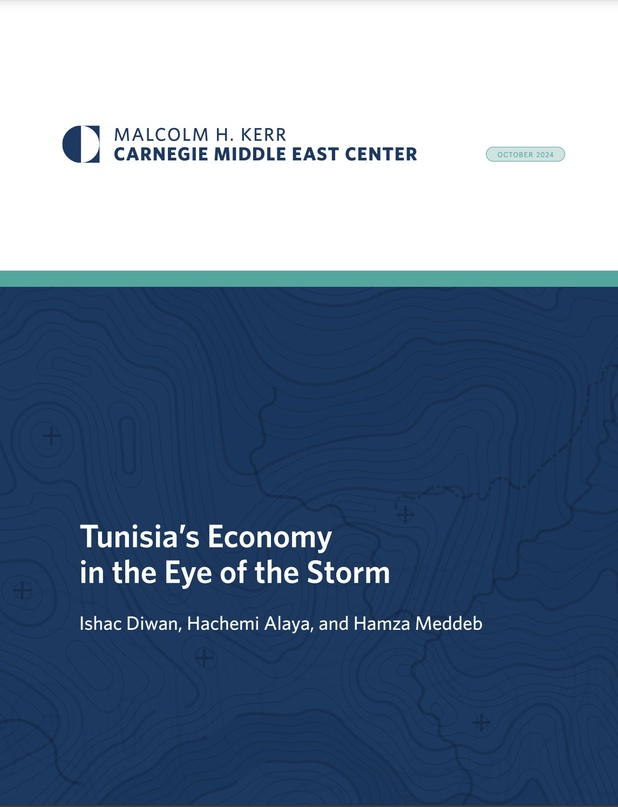Издательство:
Malcolm H. Kerr Carnegie Middle East Center
Год:
2024
Описание:
Absent rapid reform, Tunisia’s economic policies will plunge the country into an abyss. Already, a financial crisis is brewing. This is the worrisome outcome of the path the country has followed since President Kais Saied’s power grab in July 2021. The path is underpinned by two main aspects of economic policy. The first is an expansive (and expensive) fiscal drive that has produced historically large deficits for four successive years, pushing public debt to unsustainable levels. The second is insufficient governmental support for economic activity, with a deteriorating business climate and heightened macroeconomic risks scaring the productive sector and halting economic growth.
The mechanism that could spark a conflagration is also becoming clearer. The closing of external spigots is pushing the government to finance more of its large deficit domestically, through increased borrowing (from banks, national bondholders, and the Central Bank). This is crowding out the private sector, lowering economic growth, increasing inflation, diminishing the quality of banks’ balance sheets, and increasing the risk of a large devaluation of the Tunisian dinar. All the elements are in place for a financial crisis that extends across public debt, foreign exchange, and the banking sector.
Presidential elections are scheduled for the end of 2024. Saied has built his populist appeal on a public commitment to two principles: resolute opposition to an International Monetary Fund (IMF) program, in order to avoid the austerity-related hardships it would cause the population; and fighting corruption by compelling the “corrupt business elite” to relinquish its allegedly ill-gotten wealth through a judicial process that threatens business owners with jail if they do not acquiesce. These two principles have resonated with a population fed up with a chaotic decade marked by repeated external bailouts and rising domestic corruption. However, Saied’s approach has also led to a jump in debt and a collapse of growth, both of which are now eating away at the economy.
As a result of all this, there is a serious risk of a financial blowout. Tunisia is perilously close to having to dig into its financial reserves. There is no guarantee that the situation will remain contained until the elections. A financial crisis, if it erupts, risks inflicting on the country a harrowing mix of state bankruptcy, economic collapse, deep social wounds, and major political challenges, given the need to distribute large losses across the population.
The repercussions of flawed policies have already resulted in a decline in economic growth and a deterioration of social conditions, with reduced real wages and increased unemployment. These outcomes have led the government to increase the size of subsidies, which contributesto a significant fiscal deficit and further reinforces the unsustainability of public finances. Consequently, the country faces difficult choices. A soft landing would require a bold reform program to boost economic growth, sound and determined political leadership to ensure social cohesion, and, ideally, a supporting hand from Tunisia’s friends abroad.
Ключевые слова: Ближний Восток, Тунис, внутренняя политика, экономика, общество.



Комментарии
Добавить комментарий